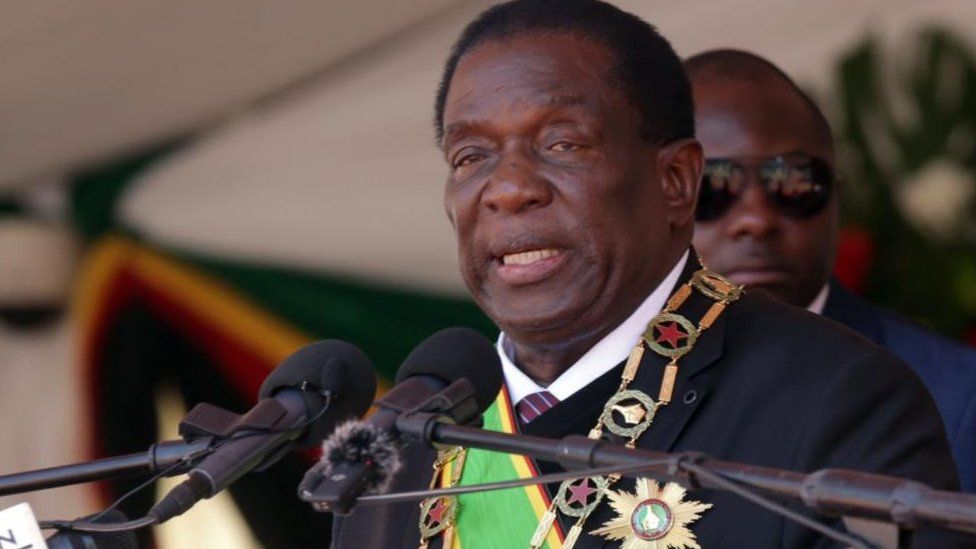-

-
-
Loading

Loading

Zimbabwe's ruling party, Zanu-PF, has swept all six parliamentary by-elections, securing a two-thirds majority in parliament. This victory now grants President Emmerson Mnangagwa the authority to amend crucial clauses in the constitution. However, the opposition Citizens Coalition for Change (CCC) claims that this will allow Mnangagwa to tighten his grip on power. The by-elections were prompted by a man accused of being an imposter, who allegedly compelled the recall of some CCC MPs. Despite losing the general election last August, the CCC held over 100 seats in the National Assembly, preventing Zanu-PF from achieving a super-majority. However, in October, Sengezo Tshabangu sent a letter to the parliamentary speaker asserting that certain CCC MPs were no longer members of the party. CCC leader Nelson Chamisa dismissed Tshabangu as a fraud, yet his claim was disregarded, resulting in vacancies in the constituencies. These recent by-elections mark the second set held following Tshabangu's contentious intervention. In a development last month, Chamisa resigned from the CCC, which he had founded only two years prior, accusing the Zanu-PF of infiltrating his party. He alleged that the CCC had been "contaminated" and "hijacked" by the government. As a result, two lawmakers have also stepped down, necessitating further by-elections. President Mnangagwa rose to power in 2017 after a peaceful coup d'etat that ousted long-serving leader Robert Mugabe. Initially, he was seen as a symbol of change and hope for the country. Nonetheless, Zimbabwe continues to grapple with significant challenges such as high inflation, unemployment, and censorship.